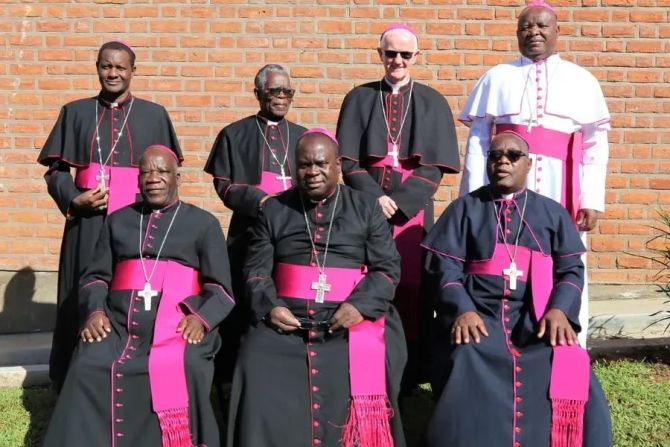Bishops in Malawi have prohibited the implementation of the Vatican declaration on the blessing of “same-sex couples” and couples in other “irregular situations,” Fiducia Supplicans, which the Dicastery for the Doctrine of the Faith (DDF) released Dec. 18.
In a two-page statement dated Dec. 19, members of the Episcopal Conference of Malawi (ECM) offered “clarification on the declaration on the pastoral meaning of blessings, Fiducia Supplicans” and stated that they prohibit the practice of such blessings in the southern African nation.
“We direct that for pastoral reasons, blessings … for same-sex unions of any kind are not permitted in Malawi,” ECM members said in their collective statement. The Church leaders’ directive prohibiting the blessings “for same-sex unions of any kind” in the country follows a four-point clarification of the latest Vatican declaration.
The bishops said they offered the clarifications “having noted certain erroneous interpretations of this declaration that have generated interest, fears, and worries among Catholics and people who look up to the Catholic Church for moral, spiritual, and doctrinal guidance.”
“The declaration is NOT about the blessing of same-sex unions and sacramental endorsement of the same as married couples,” they explained. “No, this is a document prompted by questions to the [Dicastery] for the Doctrine of the Faith regarding whether or not the blessings of God through his ministers can be extended to everybody regardless of their state, hence the title of the document is ‘On the Pastoral Meaning of Blessings’ and NOT on the blessing of same-sex unions.”
The Vatican declaration, the bishops continued, “while differentiating the meaning and levels of various blessings, reiterates that the Church’s teaching on marriage defined as an exclusive, stable, and indissoluble union between a man and a woman, naturally open to the generation of children, remains firm.”
They further reiterated that the declaration “says rites and prayers that could create confusion between what constitutes marriage and what contradicts it are not allowed (see Fiducia Supplicans, paragraph 4).”
“The same document stresses that the Church has always considered only those sexual relations that are lived out within marriage to be morally licit,” the bishops said.
Regarding ordinary blessings whose recipients can be people, objects of worship and devotion, sacred images, places of work, fruits of the earth, etc., ECM members said that “such blessings are to be given to anybody and anything bearing in mind that the great blessing of God is Jesus Christ, the Eternal Word with whom the Father blessed us while we were still sinners.”
“It is in this context that same-sex union couples or those living in irregular unions can ask and access nonliturgical ordinary blessings, which the Church has always given to whoever asks of them,” they further stated.
In permitting such blessings, ECM members cautioned, referring to the Vatican declaration: “We should be careful that such blessings should not be construed as a liturgical or semi-liturgical act, similar to a sacrament, and that such decisions that may be part of pastoral prudence in certain circumstances should not necessarily become a norm for the Church [and] does not have the power to confer its liturgical blessing when that would somehow offer a form of moral legitimate union that presumes to be a marriage or to an extra-marital sexual practice.”
“While we understand the legitimate interest and fears this declaration has generated, we wish to assure all Catholics and all those interested in Catholic teaching that the teaching of the one, holy, catholic, and apostolic Church on marriage remains,” they said, citing paragraph 4 of Fiducia Supplicans, emphasizing that marriage is “an exclusive, stable, and indissoluble union between a man and a woman, naturally open to the generation of children.”
By ACI Africa



Leave A Comment